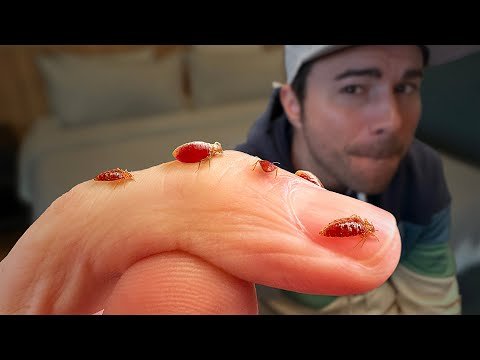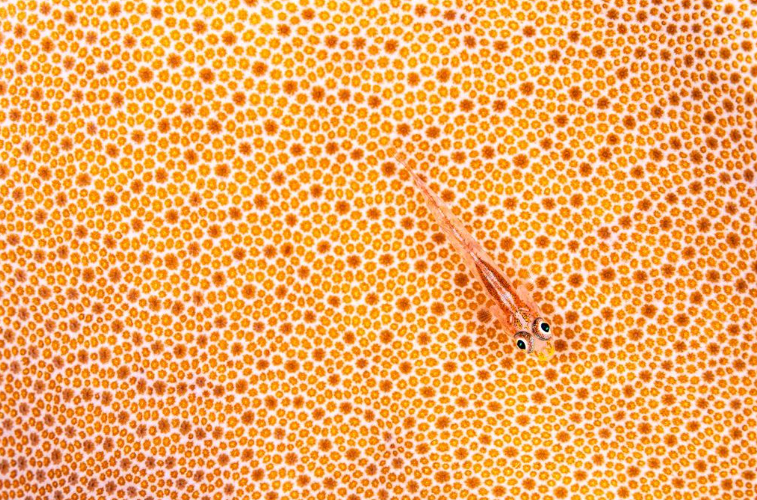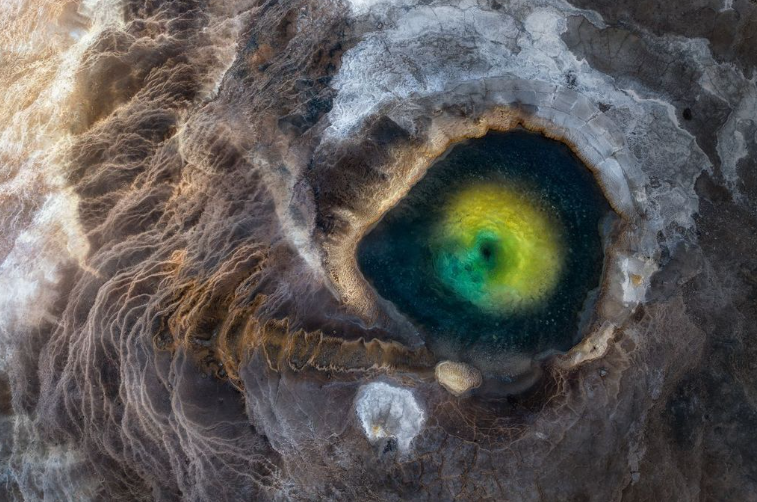“Good night! Sleep tight! Don’t let the bed bugs bite!” This sing-songy rhyme that has been around for centuries alludes to the fact that bed bugs were prevalent in the past. After a significant decrease post-WWII, however, the sneaky pests have been making a comeback. Since the 1990s, bed bug infestations have risen dramatically, leading people to look for ways to avoid and get rid of the blood-sucking little buggers.
Unfortunately, a lot of the information about how to do that is flat-out wrong. Popular YouTube science communicator Mark Rober invites viewers to forget what we think we know and go on an educational journey with the leading bed bug researchers at Rutgers University’s urban entomology lab. Not only did Rober subject himself to bed bug bites on purpose to see what happens when they feed, but he also conducted a series of experiments in the lab to find out what is actually effective at killing them and what is not.

Bed bugs have a reputation for being nearly impossible to get rid of, which isn’t really the case, according to Rober. When you know what works, it’s actually a fairly simple process to kill an infestation. And the good news is that it doesn’t entail any toxic chemicals—in fact the pest control chemicals sold for bed bugs don’t work at all, according to Rober’s tests.
In the process of learning about bed bugs, Rober shared a few “super wild” facts about the infamous creatures.
Fact #1: Bed bugs can live 3 to 10 months without feeding.
Eek. No wonder it seems like it’s impossible to get rid of them. Starving them doesn’t work. They can live in the resting stage for 3 to 6 months, and if the environment is cold enough, they can survive around 300 days, or 10 months, without eating.
Fact #2: Bed bugs don’t transmit disease
Some good news here: Unlike blood-sucking mosquitoes, bed bugs don’t carry or transmit disease. The bad news on the front is that because they don’t pose a disease threat, only an annoyance, there’s not a big incentive to fund research to eradicate them.
Fact #3: Bed bugs are attracted to vertical objects
In one of Rober’s experiments, he placed a dish with a cylindrical vertical post inside it an a dish without a column, and nearly all of the bed bugs in the enclosure ended up in the dish with the column. “If you think about it, humans sleep at the highest elevation any given room. So their logic is just crawl up any vertical surface you see until you eventually find a warm-blooded meal at the top.”
Part of how they find humans is by smell, which is why certain strong-smelling items can act as a deterrent for bed bugs. In Rober’s experiment, Bounce dryer sheets, moth balls, baking soda, and essential oils all seemed to repel bed bugs (as opposed to ultrasonic pest repellers, which appeared to have no effect). However, none of those things did anything to kill them.
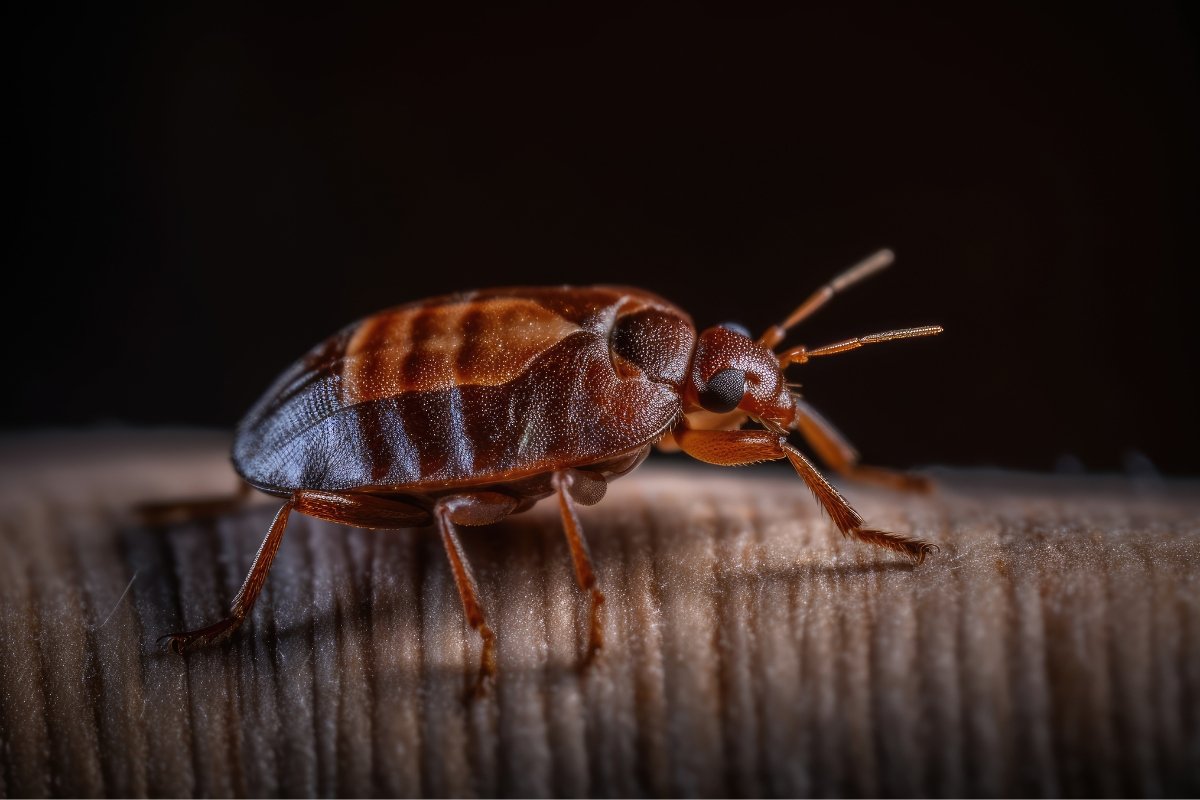
Fact #4: Before 1950, one in three homes had bed bugs
Yikes. Even with the resurgence, we’re still nowhere near those numbers, thank goodness.
Fact #5: The way bed bugs mate is weird
The term used to describe it is called “traumatic insemination,” and really, you should just let Mark Rober explain it with his visual metaphor. Start at minute 11:30.
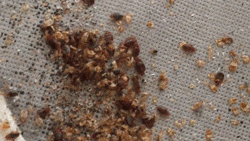
Two things work well to kill bed bugs—diatomaceous earth and heat
In testing chemical sprays, foggers, and other items marketed for killing bed bugs, Rober found a “superstar” in a natural, non-toxic substance. Diatomaceous earth—pulverized fossilized remains of tiny aquatic organisms called diatoms—was the most effective at killing the buggers with a 90% mortality rate after 10 days as opposed to 12% with the Hot Shot bed bug spray. Diatomaceous earth is mostly silica, which absorbs moisture, and when the silica dust sticks to the bed bugs as the walk through it, it dehydrates them. A light dusting of diatomaceous earth around all the cracks and crevices of a room is one way to kill off an infestation, though that process can take days.
The other way to kill bed bugs is heat. Steam kills bed bugs, as does heating up a room to over 122 degrees Fahrenheit does the trick. Temps over 122 degrees kills bed bugs instantly, and as Rober points out, there’s no way for them to build immunity to this kind of treatment. So steamers and clothes dryers set to high are the average person’s best bet for killing off bed bugs if they have them. The “nuclear option” is to have a pro come in with big heaters and cook your home for a day.
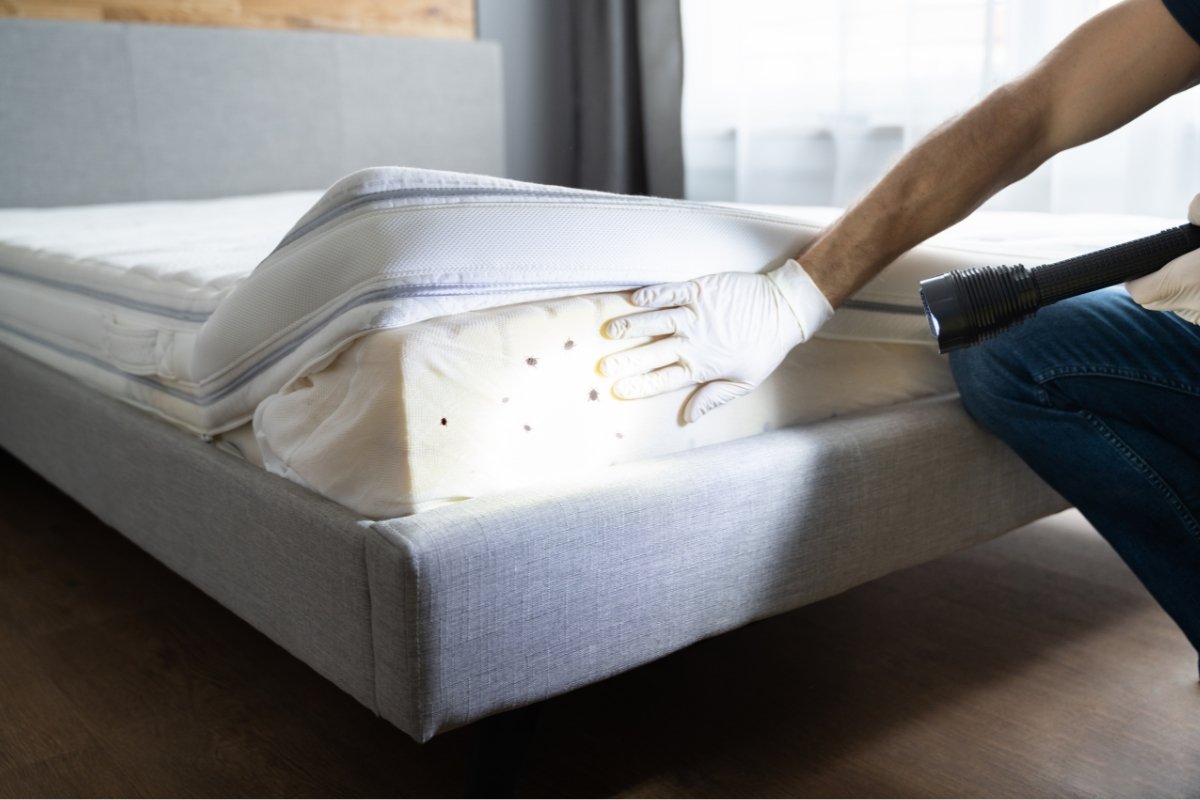
How do you avoid getting bed bugs in the first place?
An ounce of prevention is worth a pound of cure, and that’s true for bed bugs especially. Avoiding an infestation if there’s already one in your apartment building is trickier, but a lot of people inadvertently bring bed bugs home from hotel stays. Checking the underside of a hotel mattress as soon as you come in the room is a good habit to be in. Bed bugs poop a lot, and there will be spots along the edges of the mattress if bed bugs are present.
The other tip is to use the luggage rack to store your suitcase instead of leaving it on the floor or furniture and to hang clothes on the closet hangers instead of putting them into the hotel room’s dresser drawers. Some people may even put their suitcase in the bathtub, at least until they’ve checked the bed for signs of poop.
Nobody wants to deal with bed bugs, but at least now we have clear evidence of what actually works to get rid of them and what doesn’t. Cook them with heat/steam and dehydrate them with diatomaceous earth, and take some simple steps when traveling to lessen your chances of getting them in the first place.
Sleep tight, everyone!
This article originally appeared in March


